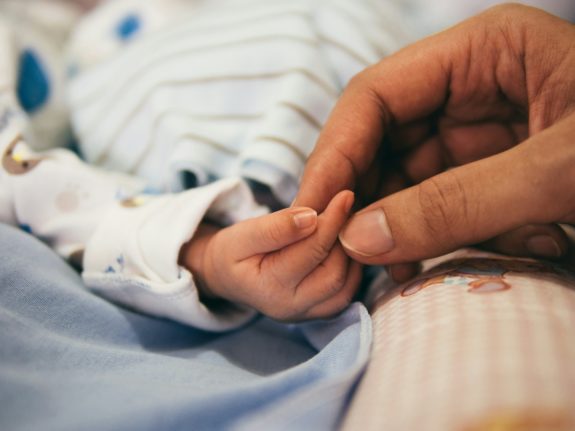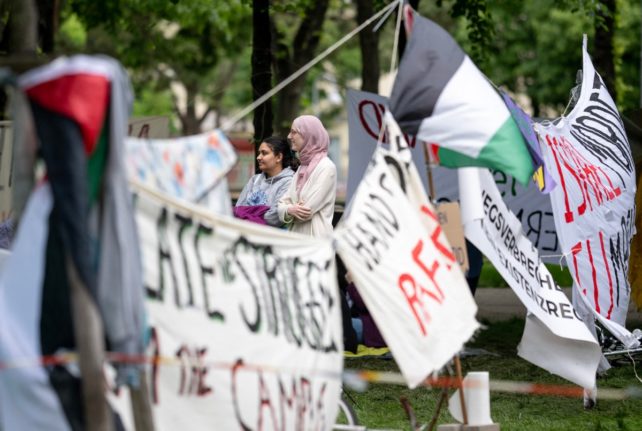New child protection campaign
A new child protection campaign called “Nein zu Gewalt” (No to Violence) has been launched by the Austrian government, with a €2 million to address all forms of violence against children, reported Kurier.
The campaign aims to raise awareness among both children and adults, using various platforms such as posters, social media, and radio spots. Messages like “Get help!” and “Take it seriously!” are emphasised, urging action in cases of suspected abuse or bullying.
During the presentation of the campaign on April 8th, Justice Minister Alma Zadić from the Green Party and Family Minister Susanne Raab from the Austrian People’s Party (ÖVP) brought up the importance of prevention, assistance, and sanctions for perpetrators. However, the Federal Youth Representation highlighted Austria’s failure to implement the UN Convention on the Rights of the Child, pushing for a nationwide child protection law with binding quality criteria.
The nursing sector needs 3,000 new training positions annually
The leading providers of care for the elderly in Austria are calling for further fundamental reforms in this area, reported Kurier.
According to Anna Parr from Caritas and Chair of Bundesarbeitsgemeinschaft Freie Wohlfahrt (BAG), the government has initiated many measures, but additional reforms are needed to address the significant challenges. Currently, there is a shortage of 3,000 training positions in nursing and caregiving annually.
“Our care system needs further care,” said the Caritas Austria General Secretary during a BAG press conference in Vienna. “We still see a patchwork system, not the reform we need”. Parr explained that there are different offerings and costs per federal state. Meanwhile, due to demographics and the retiring baby boomer generation, there is a rapidly growing demand for care.
The BAG has developed 61 measures in a recent essay for the future safeguarding of care and support. These include ensuring an adequate number of nursing and caregiving staff, improving the landscape of care services, addressing the needs of care recipients and their families, organising, financing, and digitising care, and reforming care benefits.
1,600 rejections for childcare places in Graz
For more than 1,600 children in Graz, there are no nursery or kindergarten places available this fall, ORF reported. The city councillor responsible, Kurt Hohensinner (ÖVP), describes the allocation as “challenging”. He is calling for more money and is focusing on short-term measures.
According to the statistics, most rejections relate to the category “unfulfilled criteria or unfulfilled wish to change”; in 285 cases, the criteria – such as both parents working – were fulfilled, but there is still no childcare place.
City Councillor for Education Hohensinner now gave reasons for the imbalance between supply and demand: “One reason is certainly the reduction in the maximum number of children’s groups by one child each year. This means that we have 300 fewer places per year.”
Hohensinner wants to set up three additional crèche groups by the fall. Three additional kindergarten groups were already approved last fall, but there is no funding for three more kindergarten groups, according to the city council.
Austrian Airlines negotiations continue
The negotiations in the collective bargaining dispute between the management of Austrian Airlines (AUA) and the employee representatives apparently came to an end again on Monday without an agreement. According to the trade union vida, talks are to continue on Tuesday morning.
However, both sides have agreed not to disclose the status of the negotiations, ORF reported. Monday was the 18th round of negotiations without a result. In the previous 17 rounds of negotiations, both employers and employees had shown themselves to be intransigent. The positions of the two sides are far apart, as reported.
Work started on A2 construction site
Extensive renovation work is being carried out on the Burgenland section of the Südautobahn (A2). Between the Lafnitztal-Oberwart and Pinkafeld junctions, only one lane in each direction will be available until Thursday, after which there will be two narrow lanes. The work will last until 2026.
Spy arrest puts Cold War spotlight back on Vienna
The arrest of a former Austrian intelligence officer on suspicion of spying for Russia has put a spotlight on Vienna as a spy nest in a new era of East-West confrontation.
The Austrian capital was long a hotbed of spy activity during the Cold War. And Chancellor Karl Nehammer last week urged heightened security, calling a National Security Council meeting on Tuesday to “assess and clarify the security situation” following the “serious accusations” against Egisto Ott.
Ott — a former intelligence service employee suspended in 2017 — was arrested on March 29 and accused of “systematically” providing information to the Russian secret services, according to information from the public prosecutor’s office quoted by the APA press agency.
If you have any questions about life in Austria, ideas for articles, or news tips for The Local, you can contact us at [email protected] or leave a comment below.



 Please whitelist us to continue reading.
Please whitelist us to continue reading.
Member comments